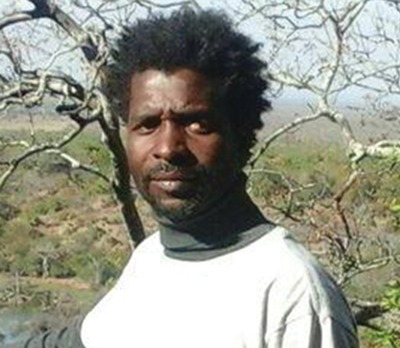
Stir the pot:Paidamoyo Muzulu
CAN one imagine coming back to see their underwear drawer rummaged? It is unthinkable that a normal person can go through such intimate stuff without their motive being questioned. However, as scary as it sounds, Zimbabwe has officially entered that territory — a State filled with paranoia — afraid of shadows.
Censorship is a word normally associated with rogue, dictatorial, regimes. Let us get this clear from the top, all governments snoop into their citizens’ personal conversations or correspondents — but it is the level of how overt or covert the programme is carried out. In dictatorships, they do it so openly without a shame.
Regimes under siege have a certain paranoia — fear around them. Zimbabweans are conversant with how the racist, colonial, Ian Douglas Smith regime during the Second Chimurenga censored people’s thoughts. It eavesdropped on telephone communications, intercepted letters and parcels, banned books and censored what was written in the public Press.
In his quest to maintain the illegal regime, Smith had no qualms in playing big brother — controlling the people’s thoughts, making them aware that the State knows even their deep thoughts, a totalitarian or surveillance State.
The world owes two brave Americans — Bradley (now Chelsea) Manning and Edward Snowden — a big thank you for openly putting their lives in danger by disclosing the massive electronic surveillance the United States was conducting. Manning was the whistleblower who gave Wikileaks the US government cables, a treasure trove of US intelligence on foreign governments, views on opposition parties and civil society.
For us in Zimbabwe, from Wikileaks we learnt words like “divisive character”, “massive handholding” being used by US diplomats in reference to leading opposition figures. We also learnt how shady characters like Billy Rautenbach feared the period soon after Christmas when top Zanu PF politicians made a beeline to his office seeking financial assistance to pay university fees for their progeny at foreign universities.
Snowden on the other hand, told us and released the evidence that the US and Britain were co-operating on a massive electronic surveillance on citizens under the programme with the acronym — PRISM. Under the programme — the US intelligence services had a backdoor entrance to all online communication. It snooped into Facebook, Messenger, Yahoo Mail, Gmail and all mobile phone service providers. This is the scary scenario presented in George Orwell’s book 1984 — the State as a big brother who sees and hears everything.
- Chamisa under fire over US$120K donation
- Mavhunga puts DeMbare into Chibuku quarterfinals
- Pension funds bet on Cabora Bassa oilfields
- Councils defy govt fire tender directive
Keep Reading
This brings me to the President Emmerson Mnangagwa administration. It came into power in November 2017 through a coup. It has over the last two years made it clear it has no scruples about snooping into citizens’ conversations, social media chats and even disrupt internet services to keep people in the dark.
However, in the past two weeks the regime outdid itself. It intercepted professor Blessing Miles Tendi’s book, The Army & Politics in Zim: Mujuru the Liberation Fighter and King Maker, that was sent to nine Zimbabweans ostensibly for censorship review. The government authorities were not forthcoming on commenting on the subject preferring DHL Africa to take the heat. The books arrived in Harare on February 28 and were only released on March 11 after two weeks of screening.
One of the recipients, lawyer and opposition MP Tendai Biti was the first to go public about the intercepted book. He was losing patience and tweeted: “Some weeks ago historian Miles Tendi couriered via @DHLAfrica to me and others his brilliant book The Army & Politics in Zim: Mujuru the Liberation Fighter and Kingmaker. Turns out that @DHLAfrica and Zimra have handed books to the CIO who are refusing to hand same over #ThisisFascism.”
Biti was not done, he added: “Only the lowest of regimes fight truth, art and ideas. Last week same regime arrested @DougColtart @ARTUZ teachers for reading Pedagogy of the Oppressed. Truth is this is a paranoid, cantankerous, illegitimate, fascist regime. Easily the worst government in the world, #Shame.”
The regime last year stopped the launch of a book Biti co-wrote with Nigeria’s ex-President Olusegun Obasanjo and others. It stopped the launch of professor Jonathan Moyo’s book Excelgate. Both launches were supposed to take place at academic Ibbo Mandaza’s Sapes Trust in Harare.
Censoring art and literature is bad. It marks the beginning of an end to civilisation. The regime has not tried to offer an explanation on why it is banning book launches or why it takes two weeks to read a book that has been in the public domain for more than a month. Tendi’s book was officially launched in the United Kingdom on February 17. It is a fact that Zimbabwe has intelligence officers in the UK. Why did they not buy the book, read it and make a decision about its suitability for Zimbabwean audience sooner? Crude intelligence is bad optics — borders on not caring what perception one gives of themselves.
“For its part, DHL Africa apologised to me for the delay and clearly laid the blame on the government. Its letter read in part: Accordingly, be assured that the delay in delivering the shipment is due to circumstances beyond our control, namely the interception of the shipment for censor review.”
The regime is very afraid of its citizens reading. It is surprising why the paranoia especially in a regime with some supposed smartheads. Or we are simply turning everything to command.











